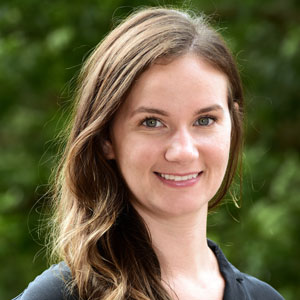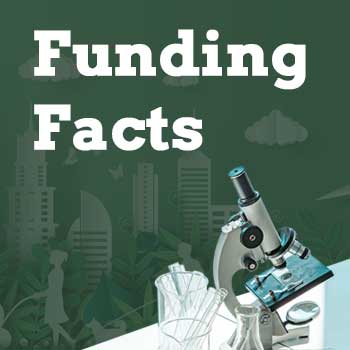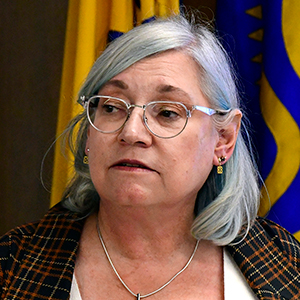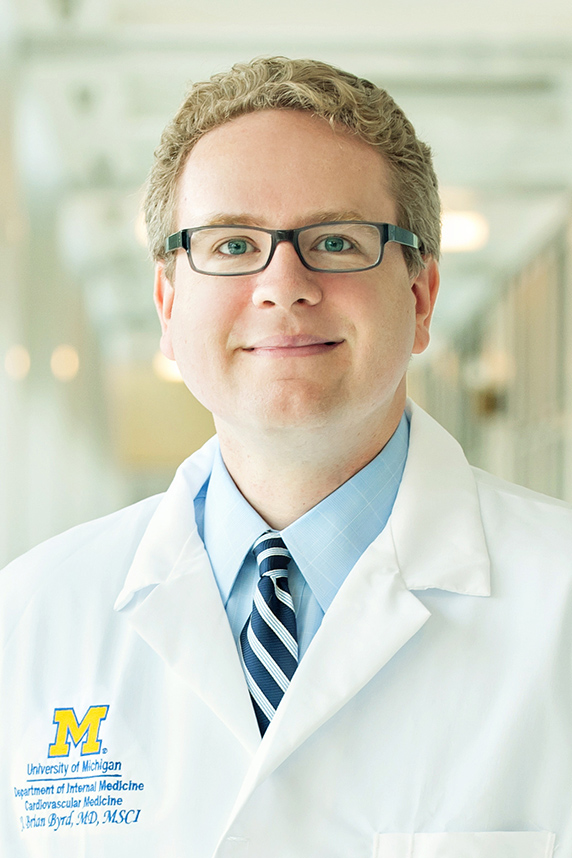 Byrd suggested that part of establishing a rubric for evaluating past data sharing should be challenging researchers to uncover problems that might arise, so they may be avoided. (Photo courtesy of Scott Soderberg)
Byrd suggested that part of establishing a rubric for evaluating past data sharing should be challenging researchers to uncover problems that might arise, so they may be avoided. (Photo courtesy of Scott Soderberg)
Practices for sharing research data need to be fundamentally redirected toward broad availability, with appropriate privacy controls, according to James Byrd, M.D. The University of Michigan physician-scientist spoke Nov. 13 as part of the NIEHS Keystone Science Lecture Seminar Series.
“Nothing illustrates the need for data sharing more than the pandemic we are in,” he said in the virtual presentation. For example, the SARS-CoV-2 vaccines nearing approval by the Food and Drug Administration were created using the publicly available genome sequence of the novel coronavirus.
Byrd shared numerous advantages to robust data sharing practices, such as those below.
- More reproducible results.
- New analyses, especially those that differ from the purpose data were originally gathered.
- Better data archiving, increasing the value of society’s original investment in the research.
- Reducing burden on authors for finding and providing old data to future researchers.
- Improving citation and linking of research data, which will enhance the visibility and recognition of authors, data producers, and curators.
Not there yet
The current state of access differs markedly from that scenario. “Research data are often difficult or even impossible to access,” Byrd said. He cited a 2014 study showing that the older a paper is, the less available are the data its findings are based on.
Citing numerous examples of authors who built high walls around their data, Byrd illustrated pitfalls, including inability of other researchers to confirm findings. Scientists who will only share data with researchers whose viewpoints they agree with are taking a clique approach to research, he said.
Carrots work better than sticks
So Byrd took a practical step and established the Research Symbiont Awards (see video in sidebar), awards for researchers who make their data easy for others to access and use. “Clique considerations need to be abandoned,” he said. “A reputation for sharing must improve researchers’ lot in life if we want [sharing] to be frequent and stable.”
The Research Symbiont Awards are one form of recognition. More important is for funding organizations to consider a researcher’s track record for data sharing, so researchers’ lives could be improved by receiving more grants.
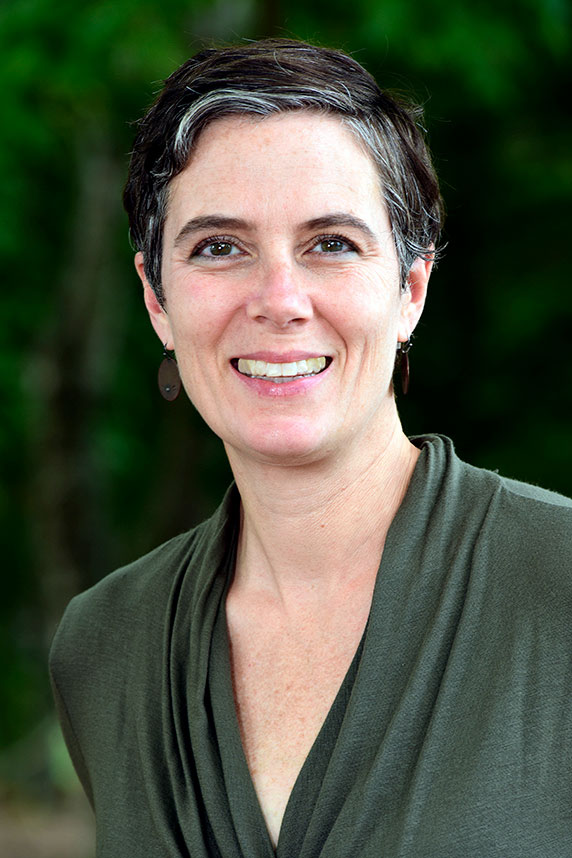
Kristi Pettibone, Ph.D., from the NIEHS Program Analysis Branch, invited Byrd to NIEHS and hosted the virtual talk. “As funders, we want to promote data sharing to maximize resources and promote better science,” she said.
Sharing amplifies impact
To illustrate the impact of robust sharing, Byrd turned to 2018 Symbiont winner Morgan Ernest, Ph.D., from the University of Florida. She assembled a dataset during graduate school and postdoctoral studies in ecology.
Her research has been cited more than 120 times, mostly for reuse of the data. “This type of sharing should influence her chance of [future] funding, since it amplifies the impact of the research funding Dr. Ernest received,” he argued.
“Reviewers might not know an individual’s reputation, so we need a rubric or metric [to convey that information].” Such a measure must address privacy protection for any study participants whose data are being shared.
One such metric is used by grant reviewers for Alex’s Lemonade Stand, a foundation that supports research on childhood cancer. Byrd hopes more organizations will step up, including the National Institutes of Health.
Citation: Vines TH, Albert AYK, Andrew RL, Debarre F, Bock DG, Franklin MT, Gilbert KJ, Moore JS, Renaut S, Rennison DJ. 2014. The availability of research data declines rapidly with article age. Curr Biol 24(1):94–97.






